"The Secret Revealed by Yemen’s Prime Minister": The Rescue Operation of Yemen’s Last Jews
In an exclusive interview, Moshe Yerimi shares his experiences as a Mossad and Jewish Agency officer. He reveals surprising discoveries from his recent mission to rescue the last Jews from Yemen.
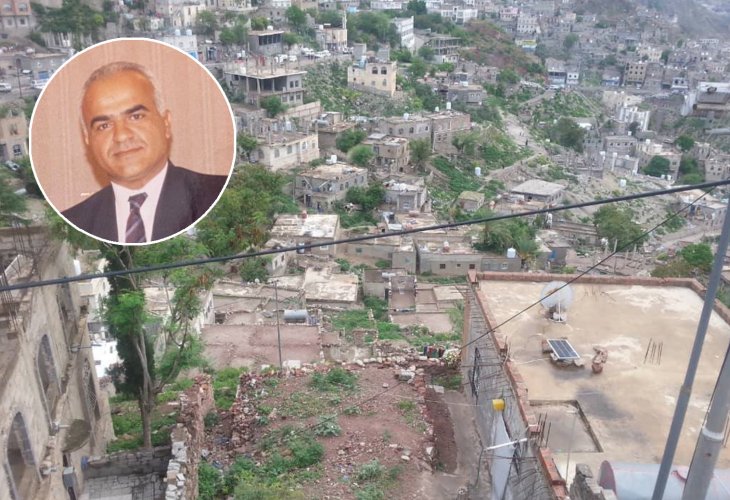 Landscape of Yemen (inset: Yerimi)
Landscape of Yemen (inset: Yerimi)Unlike Operation "Magic Carpet" — the major operation to bring Yemeni Jews to Israel in the early days of the state — the rescue mission of the last Jews of Yemen under the command of Moshe Yerimi does not have a name. Yerimi, 68, a U.S. resident, went to Yemen about 30 years ago on a mission for the Mossad and the Jewish Agency. For days and nights, he roamed the major cities and reached remote villages. As part of the complex operation, he managed to rescue most of the approximately 3,800 Jews who remained in the country and brought them to Israel.
"They Were Moved to Tears"
Yerimi’s story begins with a meeting in Manhattan about 30 years ago. "An agent from the Mossad sat across from me and informed me of the organization's intent to send me to Yemen to rescue the last Jews living there," he recalls. "At the time, Yemen's security situation was sensitive and complex, but since I am a U.S. citizen and speak Arabic, I was chosen for the task."
After a series of meetings with senior Mossad officials and figures in the Ministry of Defense, Yerimi was appointed by the Jewish Agency as the officer in charge of the rescue operation for Yemeni Jews. "When you enter an Arab country, without a phone or any means linking you to those who sent you, nobody tells you what to do. You have no way to receive instructions, and you have to do everything alone," he describes. "I devised a plan in cooperation with the local American embassy, and I began to travel across Yemen to places where Jews lived."
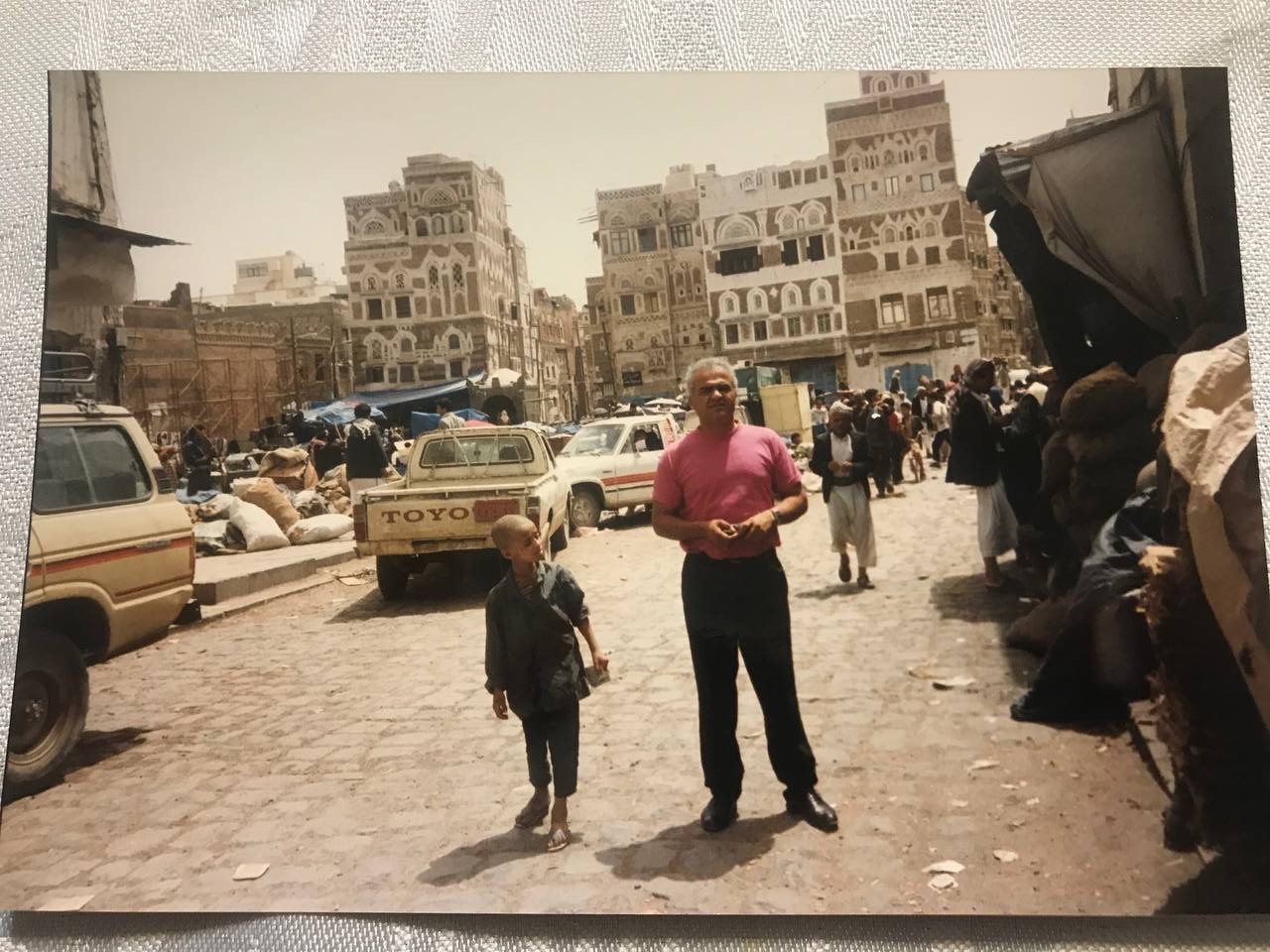 Yerimi in the streets of Yemen
Yerimi in the streets of YemenTell us about your first encounter with the Jews you met.
"I met the first Jews in the city of Raida. They welcomed me with great curiosity, and when they understood the purpose of my visit, they began to cry with emotion. By the way, a few months earlier, Hasidic Jews from New York had come to try to convince them to emigrate to the U.S., but they refused. At the end of the meeting, I told them: 'You must tell me now if you want to go to Israel or not because if you don't leave now, you never will.' I thought the whole process of rescuing the Jews would take no more than half a year, but it actually took me almost seven years."
Why did it take so long?
"For several reasons," he explains. "There was a very strong desire to come to Israel, but there were financial and governmental difficulties. The government did not grant me full freedom of action, and as I said, I had to decide how and when to act without any assistance from the Mossad or the Agency, which only provided financial and security backing. I understood that the best way to succeed was to forge friendships with the government. To this end, I befriended local sheiks and eventually reached the highest-ranking ministers in the government."
"I presented myself as a businessman capable of boosting Yemen’s economy," Yerimi reveals. "At the time, the economy was suffering from inflation, and I seized the opportunity to ask Foreign Minister Abed Al-Karim Al-Iryani to give me a task and test me. He told me, 'Please, let’s see you import a hundred trucks so that we can transport goods from Aden's port across the country.'
"A few days later, I met with President Ali Abdullah Saleh, brokered by the foreign minister. He was an admired figure with exclusive control over the country’s commerce, so many were afraid to meet him. The first thing I said at the meeting was: 'I’m not here to help you personally; I’m here to help Yemen.' As someone accustomed to people bowing and clinging to him, he was impressed by my courage. This prompted him to stand, embrace me, and immediately connect me with trading companies."
After months of hard work, Yerimi connected the Yemeni Foreign Minister with a large commercial company from New York, through which he imported over a hundred trucks from Jordan to Yemen via the port cities of Al Hudaydah and Aden. "The export and import of ships from Europe to Arab countries were naturally coordinated with the U.S. administration, so I had to connect all the relevant parties for the operation to succeed. By the way, I made sure that the companies I contacted were Jewish-owned."
"The Prime Minister Revealed His Secret to Me"<
Yerimi continued to climb the ranks of the Yemeni administration. He formed good connections with the then-Foreign Minister Al-Iryani, who had been appointed Prime Minister in the meantime. One day, Yerimi reached a solitary Jew living on the fringes of Yemen to persuade him to move to Israel. However, the Jew informed him that he possessed an ancient Torah scroll and did not intend to leave without it. "I approached the Prime Minister and requested special permission for him to leave with the Torah scroll," Yerimi recounts. "At first, he, of course, refused, but I threatened him by saying that if he didn't help me, I would reveal the secret between us. At that moment, he issued a special exit permit along with the Torah scroll."
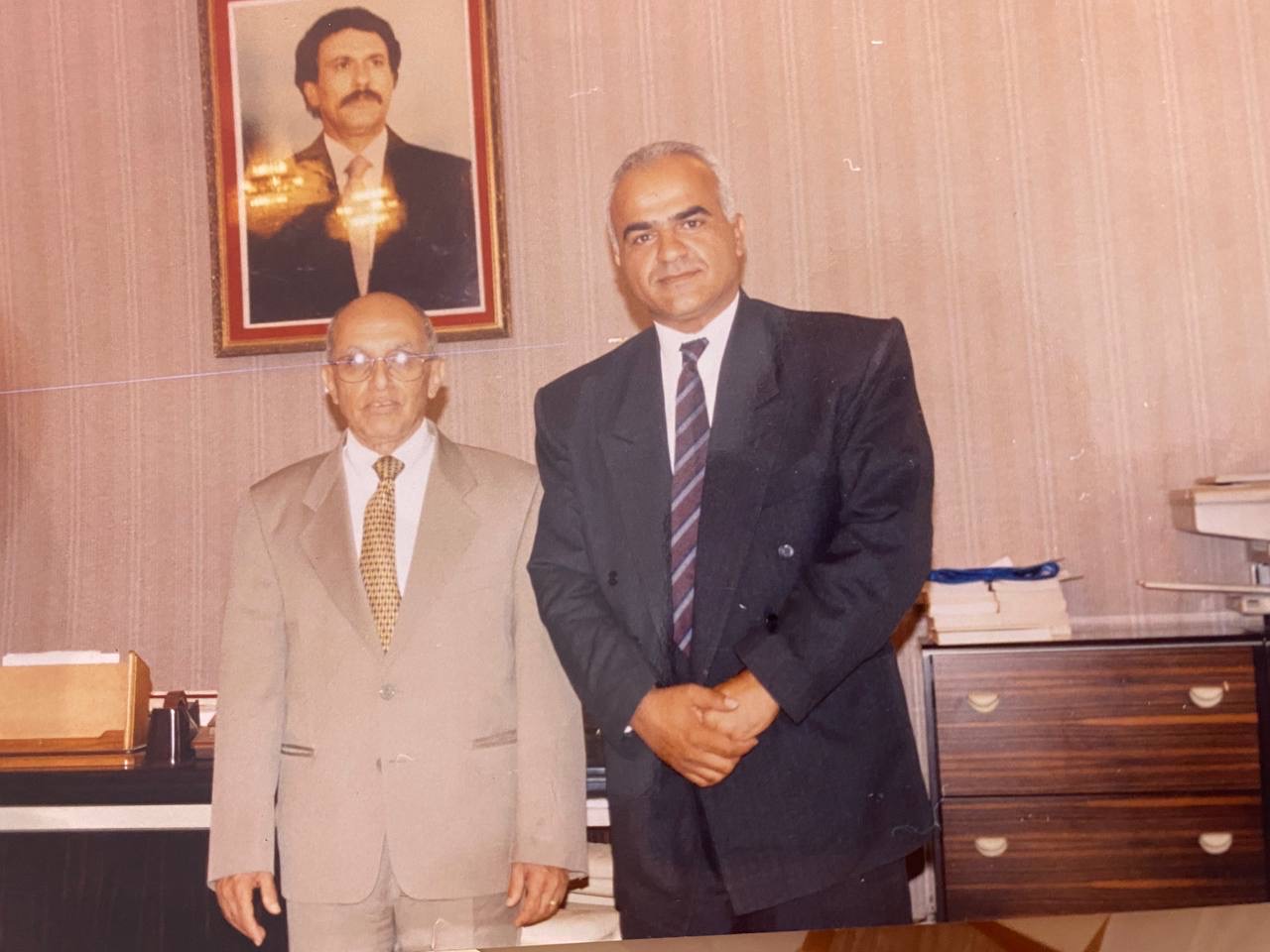 With Yemen's Prime Minister, Abed Al-Iryani
With Yemen's Prime Minister, Abed Al-IryaniWhat secret was between you?
"It was a secret I wasn't allowed to disclose, but it can be shared now since the Prime Minister has passed. It happened one day when I entered government offices, and the security personnel suddenly told me: 'The Prime Minister wants to talk to you.' I entered his office with curiosity, and he said: 'Come to my home tonight, I have a secret to tell you.'
"Late at night, close to midnight, I secretly arrived at his home. The Prime Minister sat me down and told me he felt comfortable talking to me, and he asked me not to be surprised by what he was about to say. He handed me a sealed letter in an official envelope and said: 'I want you to deliver this letter to Rabbi Ovadia Yaavetz – the rabbi of Kiryat Ekron.'
"This was a shocking moment for me," Yerimi describes. "The Prime Minister was a devout Muslim, and Yemen never had diplomatic relations with Israel. On the contrary, at that time, Yemen maintained commercial ties with Assad's Syria and Saddam Hussein's Iraq. What I discovered afterward surprised me even more: The Prime Minister sat with me late into the night and told me that in his childhood, he grew up together with Rabbi Ovadia Yaavetz. He described how they played together in the neighborhood, but during their play, his Jewish friend would sneak into the synagogue to study Torah, and he would go and learn with him."
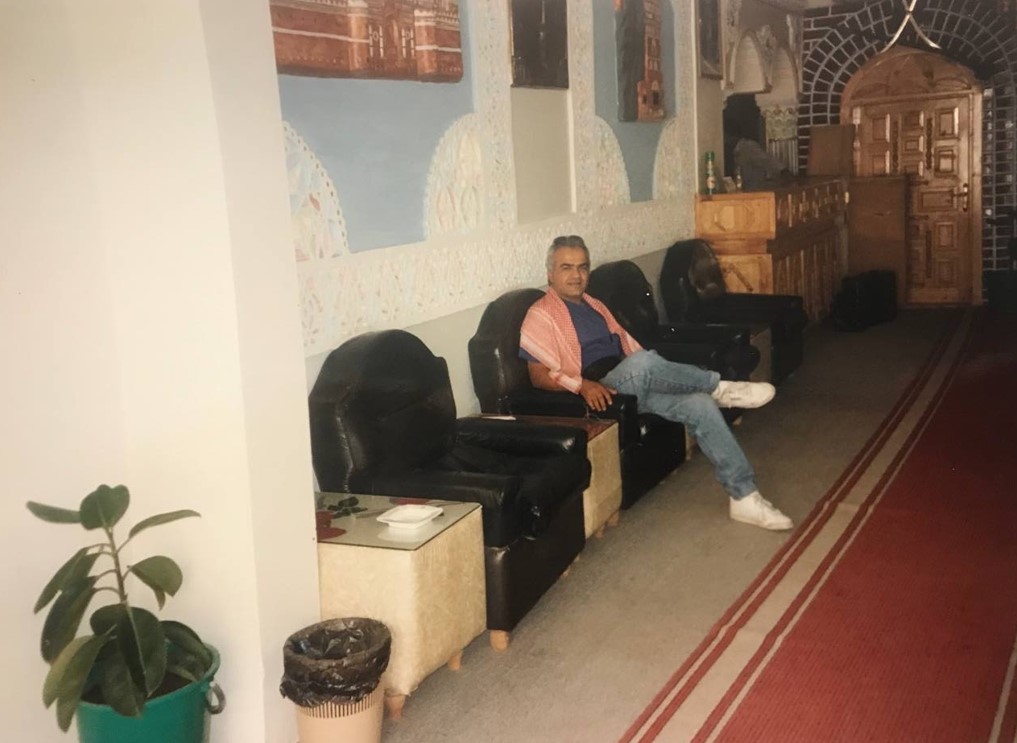 Yerimi in Yemen
Yerimi in Yemen"The Prime Minister went on to tell me that in recent years, he hasn't stopped dreaming about 'Mori Ovadia,' and he expressed a strong desire to meet him. When I arrived in Kiryat Ekron, the first thing I did was, of course, go to Rabbi Yaavetz's home. I handed him the letter, and the rabbi secluded himself in a room and read it alone. Afterward, he wrote a response letter and entrusted me to deliver it to the Prime Minister."
According to Yerimi, the correspondence between the Yemeni Prime Minister and the city’s rabbi continued for about four years. "In one of the last letters, the Prime Minister invited him for a visit to Yemen. Rabbi Yaavetz replied: 'I left Egypt, and I will never return.' From then on, their contact gradually diminished."
"I Wasn't Afraid"
Yerimi's work on behalf of the Ministry of Defense and the Jewish Agency officially ended in the late 1990s after rescuing over 3,700 of the 3,800 Jews who remained in Yemen after the big wave of immigration in the "Magic Carpet" operation through Europe to Israel. He continued to conduct business with local businessmen and maintain ties with top government officials. "I would attend weddings of senior government officials and major sheiks along with other businessmen," he says.
According to Yerimi, there are no Jews left in Yemen today. "I rescued the last three families about two years ago. Their rescue operation was much more complex and difficult due to the Islamist terror regime of the Houthi rebels. But we forged ties with the President of the United Arab Emirates and managed to bring them to Abu Dhabi."
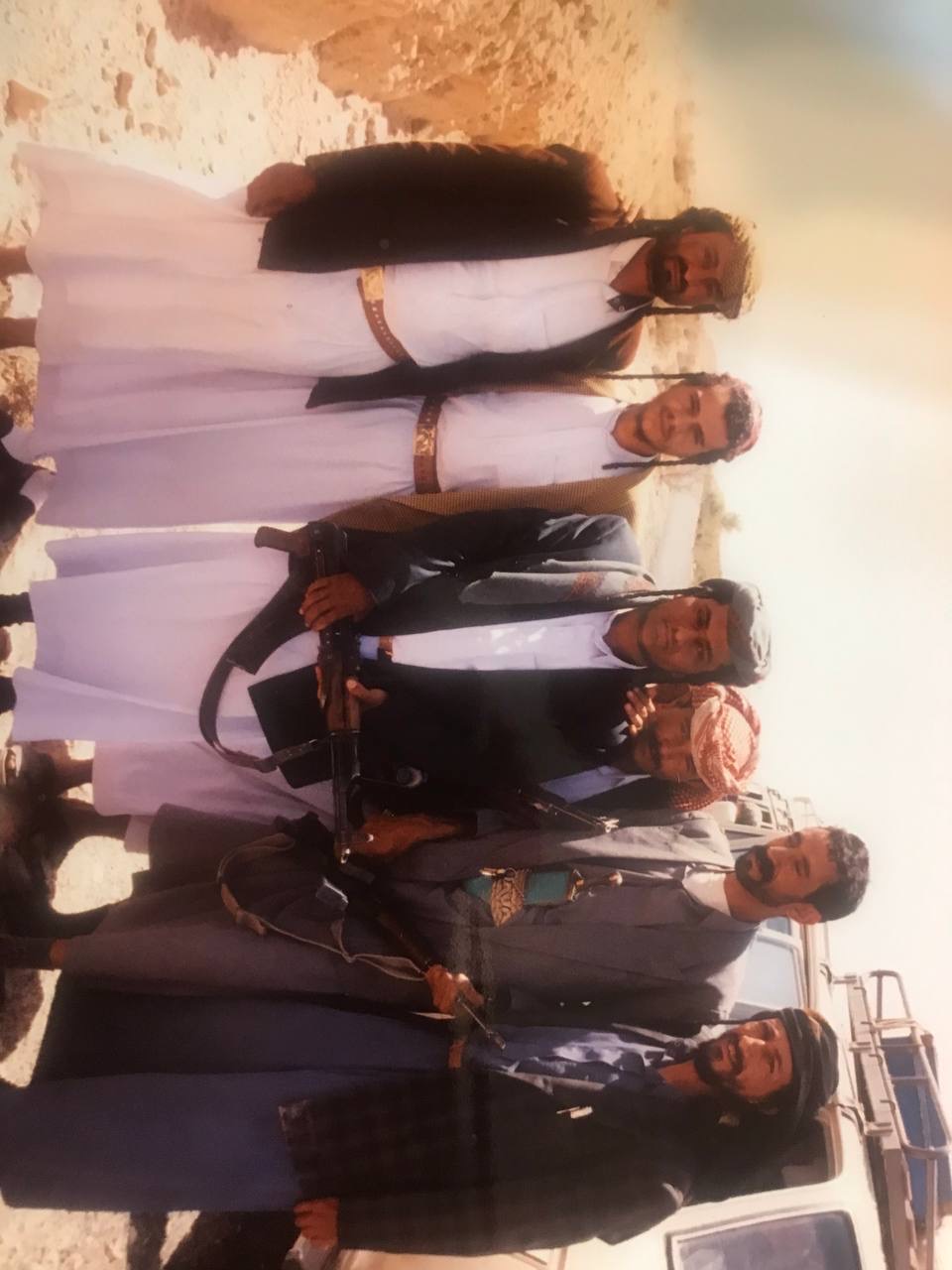 One of the Jewish families rescued to Israel
One of the Jewish families rescued to IsraelDuring all those days and nights you roamed alone in Yemen, weren’t you afraid?
"On the contrary," he says, "I was very enthusiastic. Bear in mind that I was extremely cautious. In every place I stayed, I first learned the access and escape routes in case of emergency, including hideouts where I could conceal myself. Additionally, I had internal backing from the regime in Yemen, headed by the Prime Minister and senior ministers, meaning I could move freely without fear. The Yemeni Foreign Ministry granted me a special permit, allowing me access to every place in the country without the regime forces being able to arrest me."
During his travels in Yemen, Yerimi visited the grave of the renowned poet, the righteous Rabbi Shalom Shabazi, making him the last Jew to visit the sacred site. He photographed the location, distributed, and published the documentation, touching the hearts of the Yemeni community in Israel and worldwide. Later, he managed to bring his sister and two friends for a special visit to Yemen as a token of gratitude for his work for the state. "It was an especially rare approval to bring three Israelis into Yemen," he recounts. "The Defense Minister welcomed my sister personally and stayed by her side throughout the visit."
"A Historical Discovery"
Finally, Yerimi reveals an especially surprising discovery from recent months. "It relates to the affair of the stolen assets of Yemeni immigrants," he says, opening one of the most painful chapters for Yemeni Jews, a matter still discussed in the Cohen-Kedmi Committee. "When the Yemeni Jews came to Israel, many of their valuable jewelry pieces were stolen. I found them now."
Where did you find them?
"I still can’t say. In a few months, I will return to the U.S. and complete my research on the subject, and maybe then I can talk about it."
Do you intend to return them to the families?
"Of course, but it is a long process that will have to pass through the federal court in the U.S. In fact, because many years have passed, it will be difficult to find the owners to return the property to them. If heirs cannot be found, I will seek to display these jewels in museums of Yemeni Judaism in Israel, thereby commemorating this painful truth."

